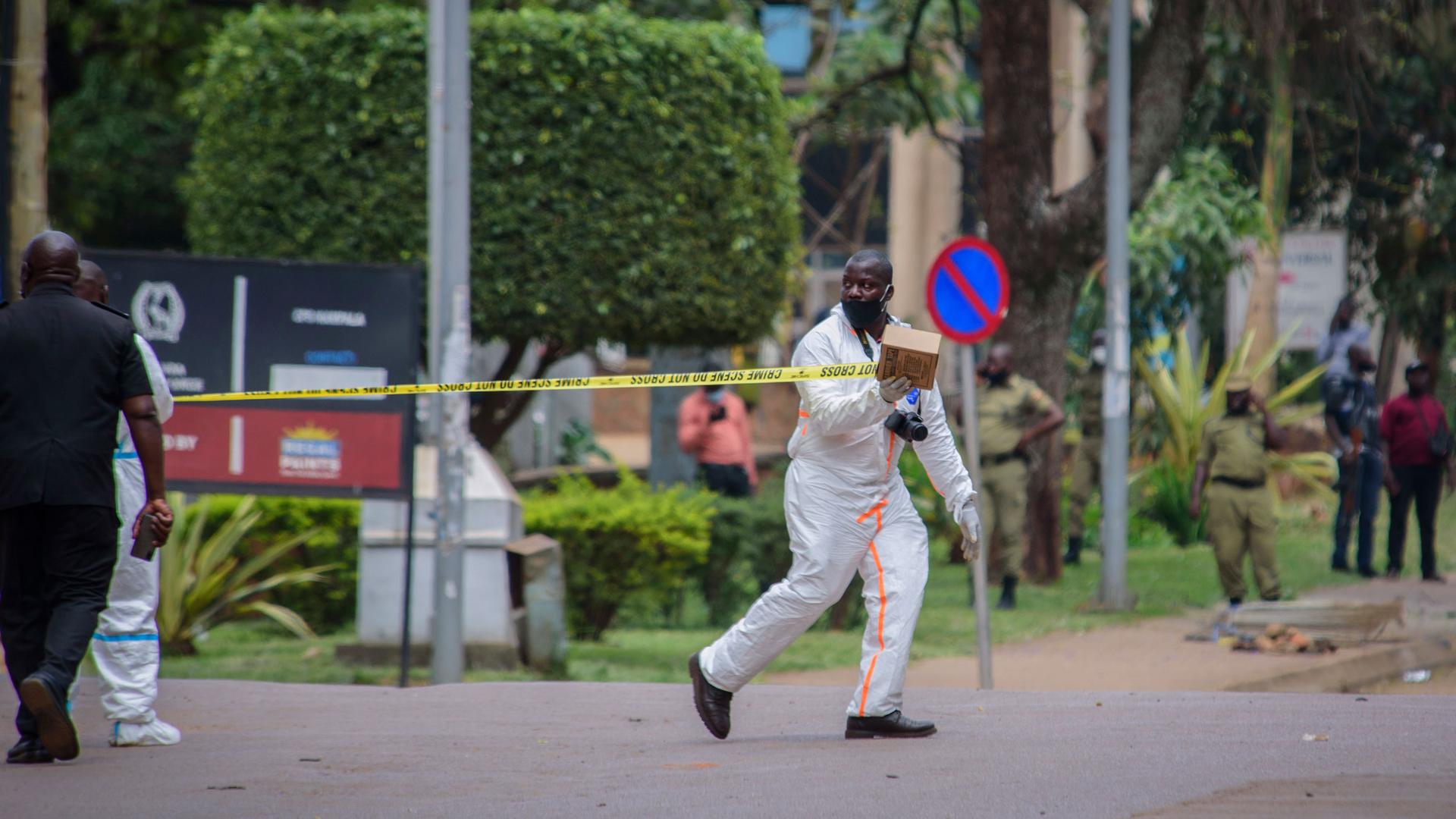Life in Uganda’s bustling capital city of Kampala was upended Tuesday morning when two suicide bombings exploded downtown.
“In total, six people have died, including the three suicide attackers,” Uganda police spokesperson Fred Enganga told reporters.
Related: As Afghans flee Taliban rule, some find a temporary new home in Uganda
According to CCTV footage shared by police, a man carrying a bag approached the exterior of the central police station at 10:03 a.m. Soon after, a blast went off.
“By the time people called us, of course, the scene was very terrible. People were really scampering and scattering.”
“By the time people called us, of course, the scene was very terrible. People were really scampering and scattering,” Irene Nakasiita, spokeswoman for the Uganda Red Cross, told The World from Kampala.
Three minutes later, according to CCTV, two motorcyclists approached Parliament Avenue, where another explosion went off not far from Uganda’s parliament building.
Related: A conversation with Bobi Wine, Ugandan opposition leader
Police said more than 33 bystanders were injured in the explosions. Five were critically injured, including police officers.
“There are those that had big wounds, there are those that were not breathing so well, required resuscitation, required oxygen,” Nakasiita added. “But also, they will require additional psychosocial support because the trauma was a lot.”
The suicide bombings are the latest in a string of explosions that have plagued Uganda in recent weeks.
Last month, at least two people were killed in separate explosions at a restaurant and on a bus.
“Our intelligence also indicates that these are domestic terror groups that are linked to ADF,” Enganga said.
The Allied Democratic Forces (ADF) originated in northern Uganda in the 1990s as an Islamist, anti-government movement. But it’s since based out of the Democratic Republic of Congo, where it has waged brutal attacks on civilians.
Related: After Museveni wins presidency, Ugandans gradually return to preelection normal
Earlier this year, the United States designated the ADF as a terrorist group and called it an ISIS affiliate.
While the exact nature of that relationship remains unclear, it’s evident the ADF continues to pose a threat to Uganda.
“The bomb threats are still active. Especially from suicide attackers. We believe there are still more members of these domestic terror cells.”
“The bomb threats are still active. Especially from suicide attackers. We believe there are still more members of these domestic terror cells,” police spokesperson Enganga said.
Meanwhile, in neighboring Kenya, authorities have said they have heightened security at the borders following the attacks.
